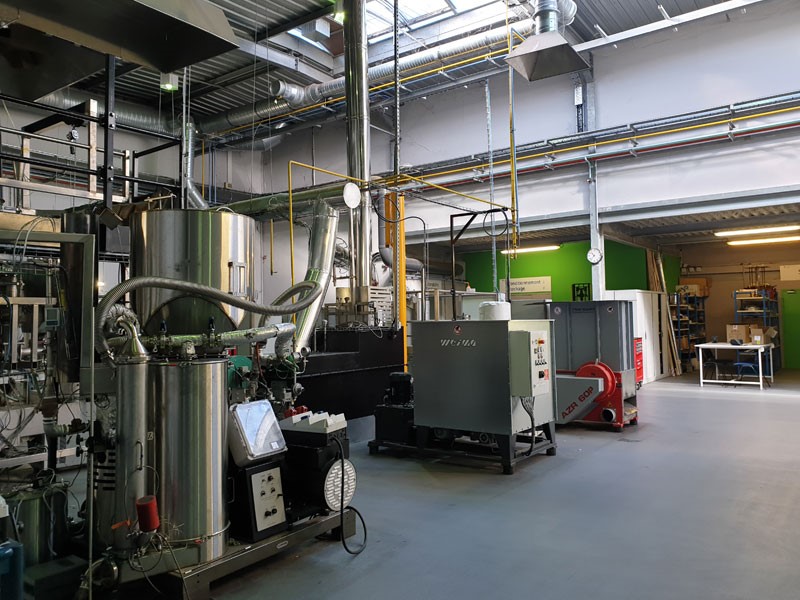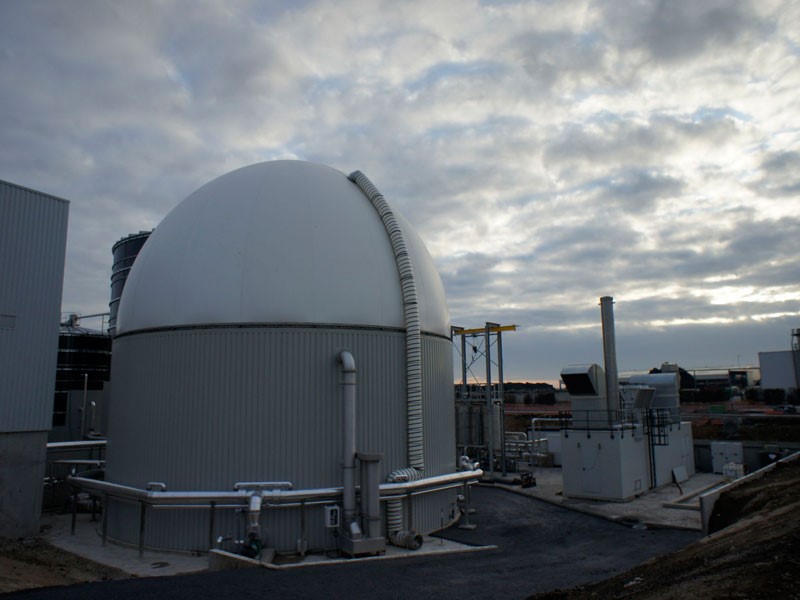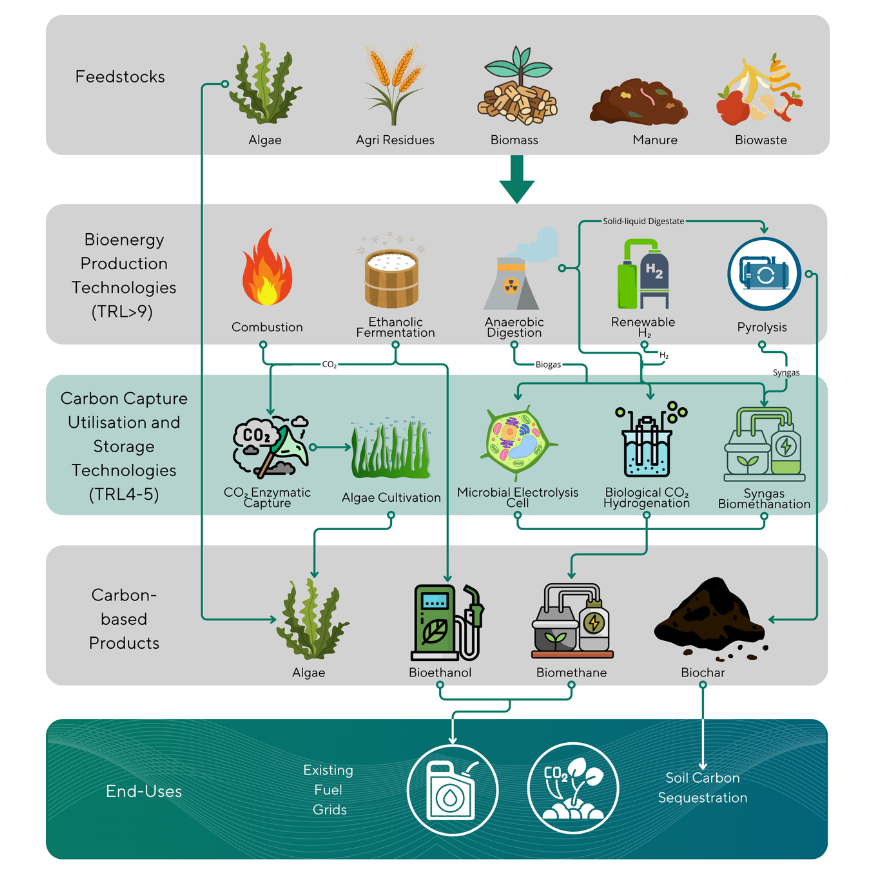Project description
CRONUS addresses the current gaps in biofuels production, namely the carbon waste and biogenic effluent gases and their related environmental problems by implementing optimised management systems whilst having a positive trade–off with productivity, quality and environmental impact.
CRONUS is an RIA project funded by the European Commission through the Horizon Europe programme coordinated by the National Technical University of Athens (NTUA). It brings together partners from 8 countries and key stakeholders who will identify preconditions and influencing factors that drive or hamper the transition to greenhouse gas neutrality of the energy and mobility sectors, boosting biofuels market.

The overall objective of CRONUS is to develop, assess and test 5 new integrated and sustainable technological solutions for highly efficient biogenic effluent gases CUS within the biofuels value chain. It will thus assure biofuels’ public and regulators acceptance and market incursion. The proposed technologies will be upscaled to 5 functional prototypes that will operate in relevant environments of biofuels production plants (TRL5).
The prototypes are implemented in different regions of several countries (Greece, Denmark, France, Spain). Evaluation of the technical, economic, environmental and social sustainability of the project solutions and services will be performed by exploitation of the latest up-to-date tools, with special emphasis on the sustainability and circularity of the project.
CRONUS contributes to the development of standards for CO2-derived products, promoting their market development at the European and international levels. By implementing a stakeholder engagement approach, CRONUS addresses societal challenges by incorporating social values and concerns into the technology development process.
The project aims to increase public acceptance and awareness of biofuel technologies, identifying and communicating their advantages to the general population. CRONUS seeks financing schemes to make its solutions more attractive and cost-effective, overcoming economic challenges and fostering sustainable biofuel transition.
Through targeted policy briefs and active involvement of key policy actors, CRONUS aims to influence policy landscapes and secure political support for biofuel technologies at the local scale. The project’s impact extends beyond technological advancements, as it strives to shape a sustainable energy landscape with the broad adoption of carbon negative biofuels.
The Euro-mediterranean Water Information System on know-how in the Water Sector (EMWIS) is in charge of CRONUS communication, dissemination and engagement as well as IPR management including technology transfer.
The CRONUS consortium includes 13 partners from 8 countries: National Technical University of Athens (NTUA), Hellenic Agricultural Organisation ELGO DIMITRA, Novel Environmental Solutions S.A. (NEVIS) (Greece); Technical University of Denmark (DTU), Biotech Pro ApS (Denmark); University of Padova (UNIPD) (Italy); Agricultural Research for Development (CIRAD), UT SEMIDE (France); CARTIF Technology Center, Autonomous University of Barcelona (AUB) (Spain); AlgEn (Slovenia); Imperial College London (United Kingdom); Madisi Ltd. (Cyprus).



